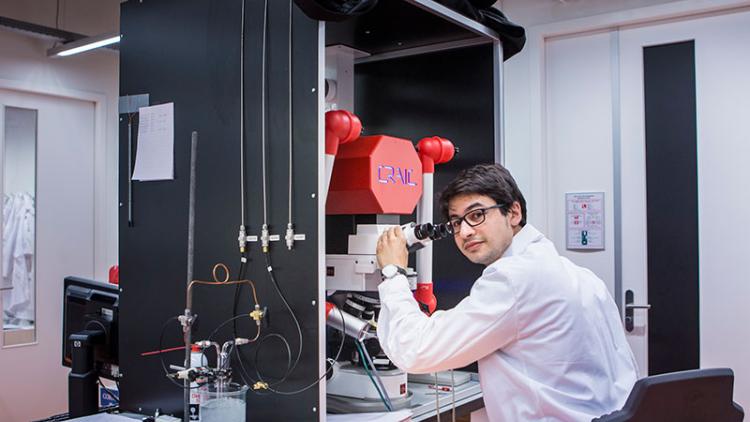PhD defense Özgün Attila
Zeolites are crystalline microporous aluminosilicates, which are hydrothermally robust. They have a uniform microporous framework that allows control over shape selectivity. ZSM-5 is a type of zeolite that is suitable for the important acid-catalyzed Methanol-to-Hydrocarbons (MTH) process. This process is a type of hydrocarbon conversion process where methanol is converted into valuable building blocks e.g., ethylene and propylene. MTH is considered as a versatile process to synthesize a variety of base chemicals from almost any type of resource, from which methanol can be made. The efficiency of ZSM-5 zeolites inter alia depends on the strength and local structure of Brønsted acid sites, which are affected by the zeolite crystallographic structure and the local Si/Al ratio. The loss of catalytic activity of these zeolitic materials is mainly caused by the formation of undesired carbonaceous species, often denoted as coke deposits, on the acid sites, which deteriorates mass transfer properties in the catalyst framework. The elucidation of proper structure-property relationships of the zeolite ZSM-5 necessitates their in-depth physicochemical characterization across a wide variety of length scales. This PhD work consists of an examination of the coke deposits within zeolite ZSM-5 during the MTH process. For this purpose, a variety of micro- and nano-spectroscopic and chemical imaging techniques have been used. With this toolbox in hand, we have revealed the nature of the desired and undesired reaction products in a time and spatial manner from the micron to the atomic scale.
Congratulations on this achievement!
Source: website Utrecht University

